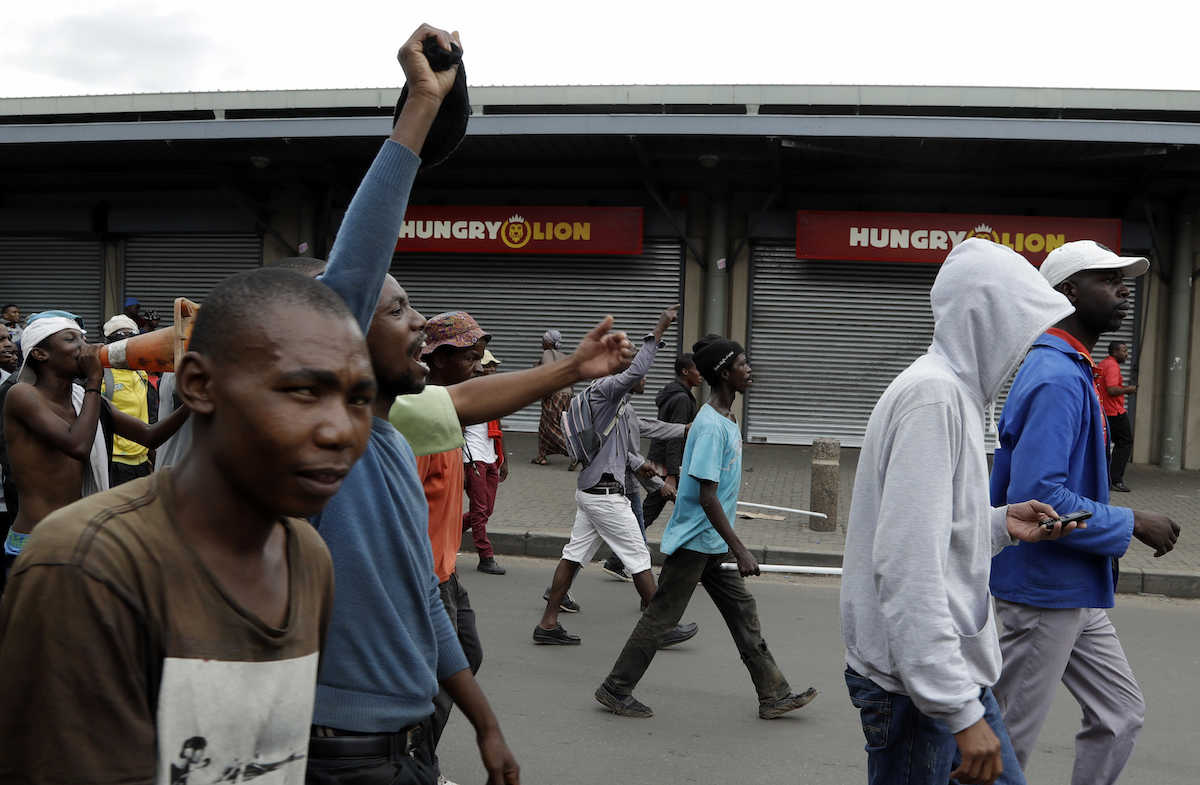PRETORIA, South Africa – Police fired stun grenades, rubber bullets and water cannon Friday as the latest wave of anti-immigrant protests broke out in South Africa’s capital, while President Jacob Zuma condemned the violence but said his country’s migrant burden is bigger than Europe’s.
A petition the protesters handed to the foreign ministry, seen by reporters, suggested that the government teach foreigners to speak properly. “They are arrogant and they don’t know how to talk to people especially Nigerians,” it said.
Resentment against foreigners has sometimes turned deadly in South Africa amid accusations that they take jobs from locals in a country where unemployment is above 25 percent. Others are blamed for drug-dealing and other crimes. In 2015, anti-immigrant riots in and around the city of Durban killed at least six people. In 2008, similar violence killed about 60 people.
Police on Friday tried to keep protesters apart from foreigners who gathered to express alarm about recent attacks. Police Commissioner Khomotso Phalane said 136 people had been arrested in the past 24 hours.
The Nelson Mandela Foundation in a statement criticized authorities for “giving permission for a march of hatred.”
The periodic backlash against foreigners has hurt the tolerant image South Africa has tried to present to the world after the long struggle to stop the harsh discrimination of white minority rule, which ended in 1994.

South Africans should not blame all crime on non-South Africans, the statement from Zuma’s office said. It cited recent reports of violence in Pretoria and hate speech on social media.
“Many citizens of other countries living in South Africa are law abiding and contribute to the economy of the country positively,” the president said. “It is wrong to brandish all non-nationals as drug dealers or human traffickers.”
An Amnesty International statement blamed authorities’ “failure to address toxic populist rhetoric that blames and scapegoats refugees and migrants.”
Zuma said South Africans are not xenophobic, and he called on everyone, citizens and non-citizens, to work together to combat the country’s high crime rate.
Despite South Africa’s high unemployment, the country is one of Africa’s largest economies and remains a draw for people from far more impoverished nations across the continent. Businesses run by Somalis, Ethiopians and others are often targeted in anti-foreigner protests.
In video posted by broadcaster News 24, Zuma said that “the numbers of the foreigners in South Africa are far more than the numbers that Europe is fighting about.” Europe, however, saw more than 360,000 people arrive by sea last year alone, according to the UN refugee agency.
South African government data show the number of foreign-born people in the country has declined. A report last year said the 1.6 million foreign born people was down from 2.2 million in 2011 — in a country of more than 55 million people.
Zuma’s statement acknowledged complaints about companies that hire illegal immigrants and said the foreign affairs office “will be cracking down on all employers who continue with this practice, which is dangerous as it pits locals against non-nationals.”
NQOBILE NTSHANGASE










